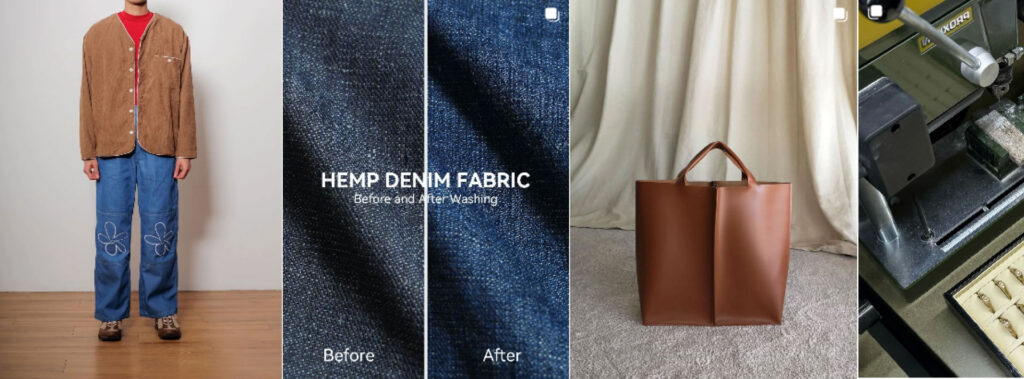Explore the real cost of fashion and how Deepwear helps brands ensure ethical pricing, responsible sourcing, and transparent supply chains that value people and the planet.
When people talk about the real cost of fashion, the story often stops at fast fashion and cheap clothes. But fashion’s accessibility wasn’t always a race to the bottom — it was a carefully built bridge between craftsmanship and inclusion.
Long before fast fashion emerged, established couture houses like Chanel, Armani, and Dior began offering ready-to-wear (RTW) collections that made high-end design relatively more attainable. This was the beginning of fashion’s democratization: when style became a shared cultural language, not a luxury reserved for the elite. These garments were meant to last — well-constructed, timeless, and reflective of an era when buying clothing was an investment, not an impulse.
Fast fashion later expanded that accessibility to a mass scale. New styles could appear in shops within weeks of a runway debut, allowing anyone to mirror the looks once exclusive to couture. In many ways, it blurred the boundaries between classes — the rich and the working class could seemingly wear the same silhouettes. But the same system that opened fashion’s doors also accelerated a cycle of overproduction, underpayment, and waste that the industry still struggles to confront today.
Even mid- to high-range brands that pay above-market rates now operate within this fast-moving ecosystem, where price competition and consumer expectations drive impossible timelines. The result? Suppliers and workers continue to absorb the hidden cost of keeping fashion “affordable.”
In this blog we cover:
- How the human and environmental costs of fashion affect workers and suppliers.
- Why ethical fashion sourcing is challenging and how Deepwear supports responsible production.
- The role of governments and policy in creating fair pricing in fashion.
- How Deepwear connects brands with trusted factories worldwide to enable sustainable, accountable supply chains.
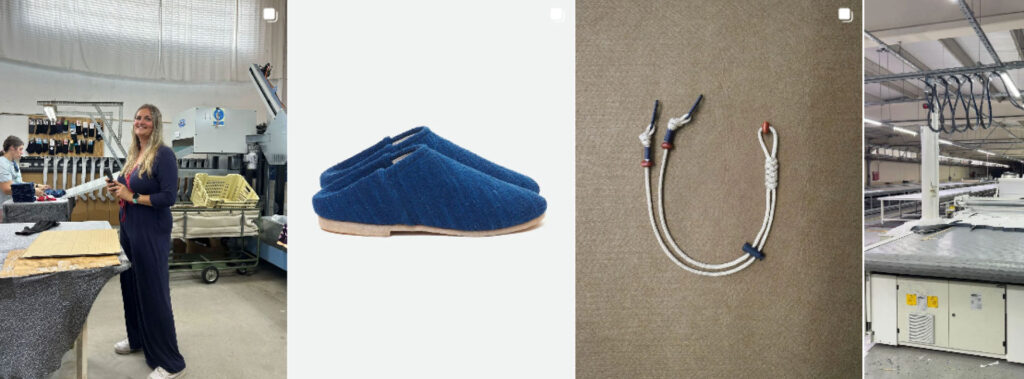
The Human Toll: From Rana Plaza to Today
The Rana Plaza factory collapse in 2013, which killed 1,134 people and injured thousands more, remains the deadliest industrial disaster in fashion’s history. It exposed the consequences of a system where production deadlines outweigh human safety — where cracks in a building were ignored so that orders could ship on time.
More than a decade later, the same pressures persist. Weak labor enforcement and brand-driven cost cutting continue to endanger workers. Reports from EarthDay.org (2025) document ongoing cases of gender-based harassment, verbal and physical abuse, and sexual coercion in unregulated factories, particularly in Indonesia and Bangladesh. Despite international labor standards set by the International Labour Organization (ILO), governments often lack the resources or political will to enforce them.
Even as the garment sector contributes 84% of Bangladesh’s exports and 16% of its GDP, 91% of Bangladeshi garment workers still struggle to afford food. In 2023 and 2024, mass protests erupted over wages, leading to at least four deaths, the imprisonment of more than 100 workers, and the eventual collapse of the Hasina government in August 2024.
The political unrest that followed has disrupted production across at least 60 factories and led major brands to reconsider sourcing from the country. While the minimum wage was recently increased by 56% to $113 per month, it still falls far below the living wage estimates of $210–$302, according to Bangladeshi labor unions and the Institute of Labour Studies.
A System Built on Fragility
The instability in Bangladesh — from the factory fires and wage protests to the January 2025 market fires in Ghana, where mountains of discarded clothing ignited — underscore the fragility of an industry powered by overproduction and underpayment. These crises are not isolated; they’re symptoms of a global economic structure where suppliers absorb the costs of volatility, and consumers rarely see the human price behind each garment tag.
As BBC (2024) reported, even as Bangladesh’s garment sector lifted millions out of poverty, it has also trapped many in a cycle of low pay and debt, where surviving on less than half the minimum wage forces workers to take out loans to feed their families. The same workers who once powered the nation’s rise are now demanding structural change.
The lesson is clear: fashion cannot remain dependent on instability. As long as production costs are externalized to the most vulnerable — factory workers, small suppliers, and local communities — the industry’s global supply chain will remain unsustainable, both ethically and economically.
Looking to balance ethics and efficiency in your sourcing process? Deepwear’s consultants can help your brand design transparent, sustainable, and fair production systems that protect both workers and margins.
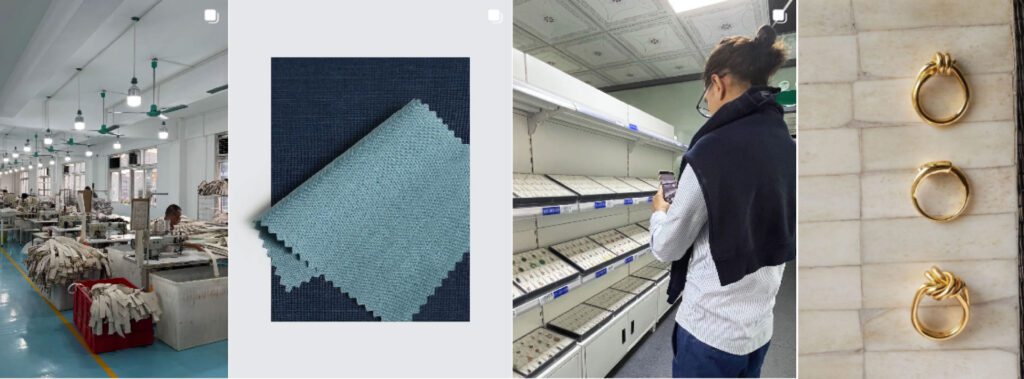
How Responsible Brands Struggle Within a Profit-Driven System
Even for brands that actively avoid exploitative sourcing, structural barriers remain. Suppliers often operate on razor-thin margins, while brands are pressured by retailers, investors, and customers to deliver more variety, faster.
Producing garments ethically — using traceable materials, certified dyes, and ensuring fair labor practices — naturally increases production costs compared to conventional manufacturing. Yet, consumer willingness to pay more hasn’t kept pace. When everyone along the chain is expected to “absorb” the cost, it inevitably falls on the weakest link: the factories and workers.
Mid-range and premium brands, which often form the backbone of fashion accessibility, face an added paradox. Their consumers are not ultra-wealthy, yet expect better quality and ethics than the cheapest fast fashion. Prices must stay within reach of the working class, who make up the bulk of the global fashion market. This reality complicates the moral narrative: most people are both victims and participants in a system that rewards affordability over fairness.
Why Governments Must Lead the Shift
True transformation requires policy intervention, not just consumer good will. Governments hold the levers that can reshape both demand and supply: enforcing labor laws, mandating transparent pricing structures, and incentivizing fair trade practices.
Public awareness campaigns can only go so far. The fashion system trains consumers to equate low cost with value, and to expect constant novelty. Without policy mechanisms such as living wage legislation, import accountability standards, and environmental taxation on overproduction — even conscious buyers are left to navigate a deeply unequal market.
In the European Union, frameworks like the Corporate Sustainability Due Diligence Directive (CSDDD) are starting to shift responsibility from the consumer to the corporate level, holding companies accountable for labor abuses within their supply chains. Meanwhile, emerging economies like Vietnam and Indonesia are experimenting with export-linked sustainability standards that could eventually reward ethical factories with tax benefits or market access.
However, until such frameworks are universal, suppliers in less-regulated countries remain the most vulnerable, especially small and medium factories that don’t have direct access to buyers or legal representation.
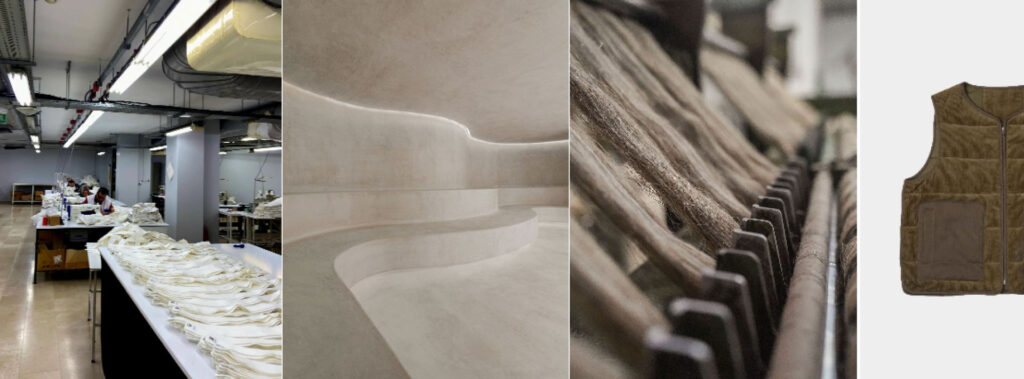
Where Deepwear Comes In
Deepwear works within the realities of modern sourcing — where ethical practice and commercial needs must coexist. Rather than claiming full control over every stage of production, Deepwear focuses on building long-term partnerships with factories that share our commitment to fair standards and sustainable methods.
Before collaboration, each facility is assessed for compliance with recognized labor, safety, and environmental benchmarks. This ensures that brands are connected only with manufacturers that meet consistent and responsible production criteria.
Deepwear also encourages greater visibility across the supply chain, understanding that full traceability takes time, resources, and collaboration between multiple stakeholders. The goal is progress, not perfection — supporting factories and brands as they take meaningful steps toward a more accountable system.
Through our network, Deepwear helps brands:
- Work with pre-vetted, reliable factories that align with global ethical standards.
- Plan production timelines that reduce the need for overtime or rushed orders.
- Select materials that balance durability, performance, and environmental consideration.
- Adapt sourcing strategies that minimize waste and overproduction while keeping designs competitive.
Deepwear’s role is to make responsible sourcing achievable and sustainable — guiding brands toward better choices without compromising creativity or market reach. After all, responsible fashion isn’t about perfection; it’s about consistent progress and shared accountability.
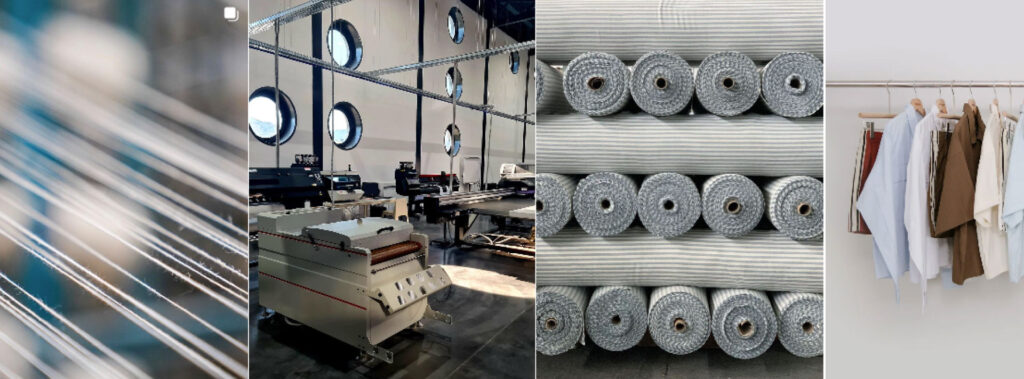
Why Does Fair Pricing Matter in Fashion?
Fair pricing ensures that every part of the supply chain—from raw materials to factory labor—is compensated ethically. It reduces wage exploitation, supports sustainable production, and creates a fairer balance between affordability and accountability. Deepwear guides brands through transparent costing, supplier audits, and responsible sourcing strategies that protect both workers and long-term brand integrity.
Rethinking Value in Fashion
The real cost of fashion isn’t hidden — it’s just outsourced. Each garment reflects a web of choices: who made it, how it was made, and at what human or environmental price. The system isn’t broken because of demand; it’s broken because the race for profit eclipsed responsibility.
Fast fashion has undeniably democratized style, making once-exclusive trends from couture houses accessible to millions. But as the gap between luxury and affordability narrows, another one widens — between ethics and economics. The challenge today isn’t whether we can make fashion faster or cheaper. It’s whether we can make it fairer.
True sustainability doesn’t start with materials alone; it begins with how we value people, labor, and transparency at every step of the chain. That’s where conscious partnerships matter.
Ready to build a fashion brand that values people as much as profit? Book a strategy call with Deepwear’s ethical sourcing consultants or explore our full responsible supply chain solutions today.
